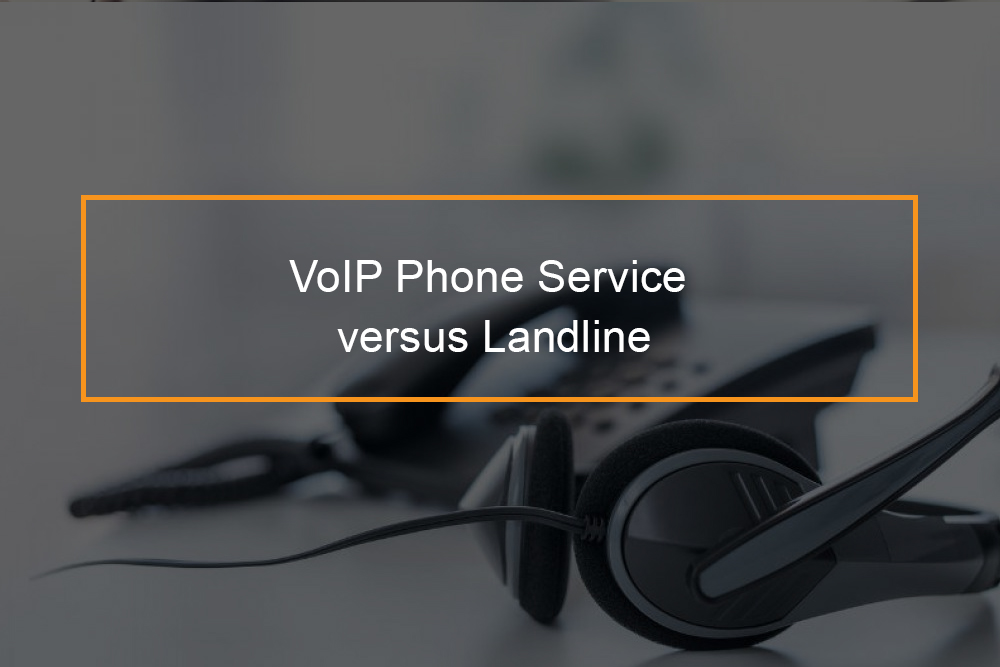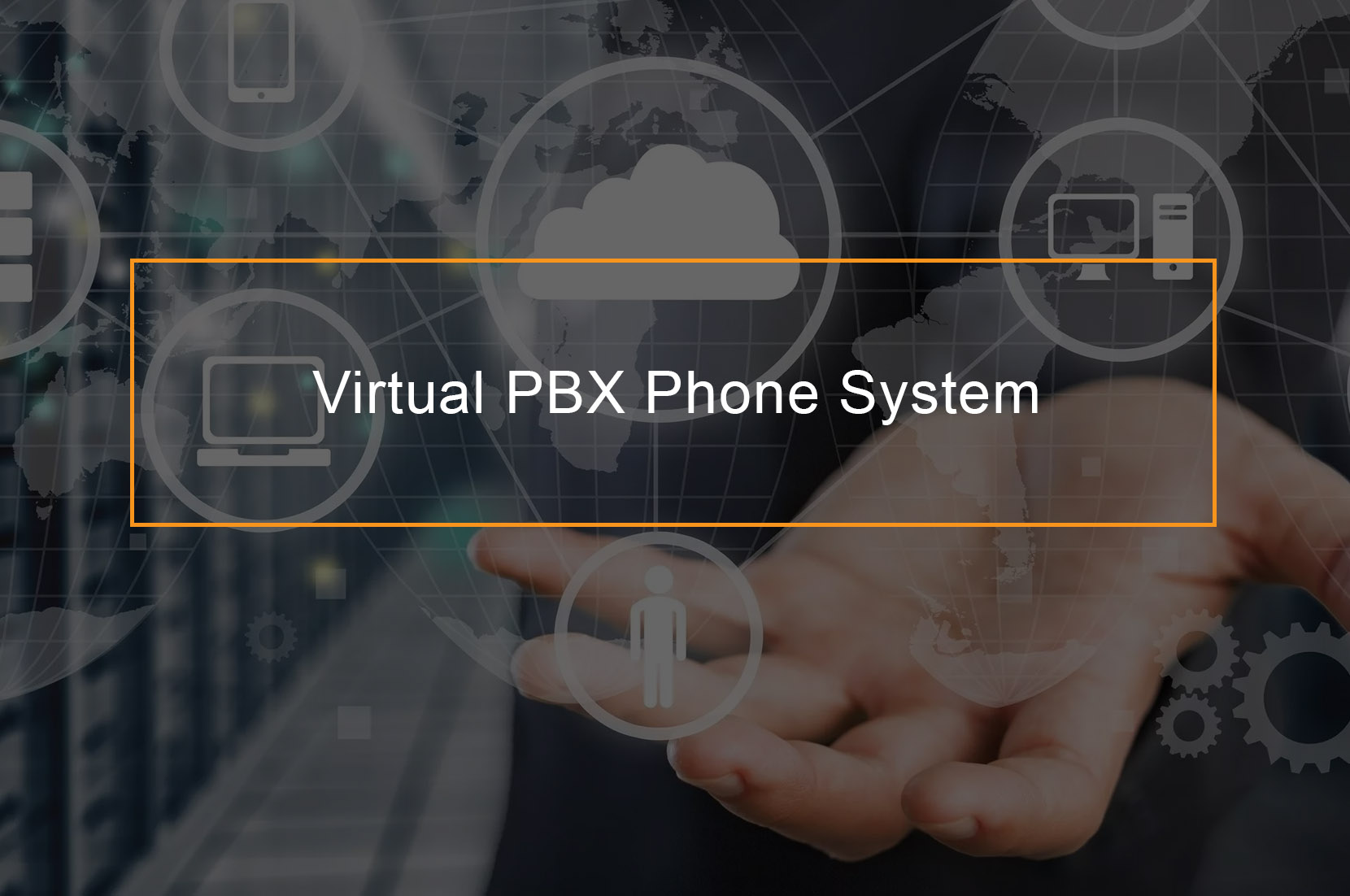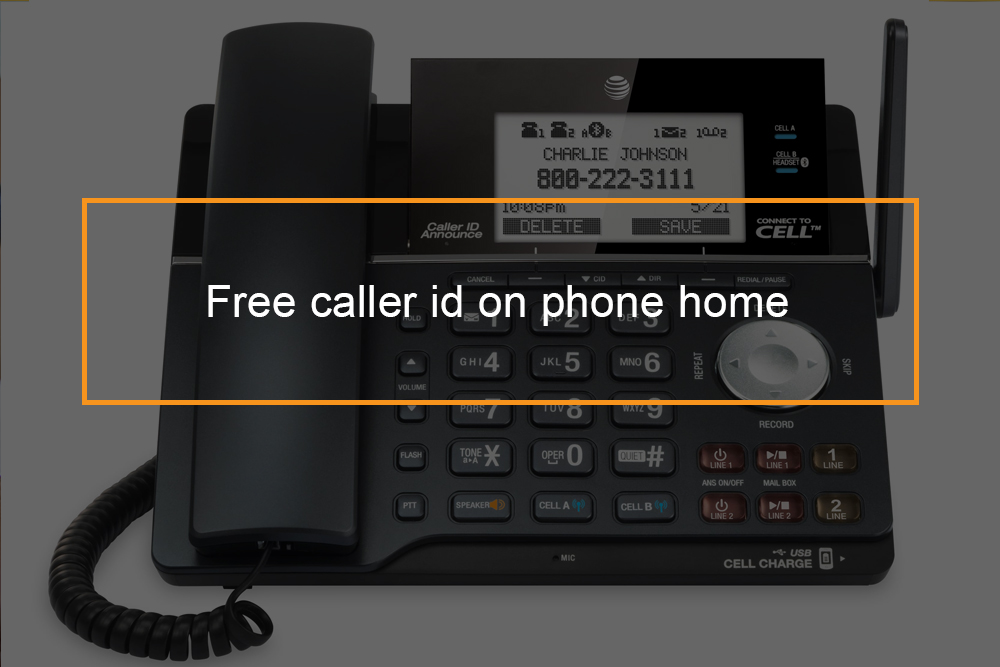VoIP phone service versus landline: What is the difference?
 The main difference between a VoIP and landline phone is: while landline involves the use of a copper line to connect your home to a phone network, VoIP technology consists of the conversion of analog voice calls into a digital format to relay over the internet. VoIP phones have more features, and better functionality compared to landline phones.
The main difference between a VoIP and landline phone is: while landline involves the use of a copper line to connect your home to a phone network, VoIP technology consists of the conversion of analog voice calls into a digital format to relay over the internet. VoIP phones have more features, and better functionality compared to landline phones.
When deciding the benefits of a landline phone service versus VoIP, there are a lot of variables to consider. Except for both technologies being the primary method by which people can dial and receive phone calls, these alternatives couldn’t be more different. Business phone systems introduce a variety of needs and limitations that make the evaluation of landlines versus VoIP phones even more critical.
This article clarifies the differences between VoIP and traditional landline phones. By the end of the article, you should have all the information you require to start defining a core technology.
VoIP vs. landline
The key difference between VoIP and landline phone services
Separating factors of VoIP and Landline Phones
Landline vs. VoIP: How they work?
The landline telephones are built on networks of copper wires, branch exchanges, and switches. There are numerous miles of physical pathways, some larger than others, with complex interchanges that cost a great deal of money to install, they are disruptive and hard to make changes to, and that is also generally very expensive to control by anything other than the largest of organizations.
VoIP phone services, on the other hand, use your business existing internet connection to change and transfer the audio as data. While Skype and others such as Ooma are examples of good VoIP services for individuals, other VoIP options such as RingCentral and Nextiva provides the same technology, but on a larger scale for business.
Bearing in mind, VoIP also works similarly to a traditional phone system; you can make and place business calls using any phone if it is another VoIP phone, smartphone, or a landline. It might operate on a different network, but you can use like any other device.
Landline VS. VoIP: features and scalability
The first factor that most companies will consider when selecting between a landline and a VoIP business phone is price, but the real search of a business phone should start with features, scalability, and functionality. Features and scalability are two areas where VoIP has a unique advantage over landline phones. Since the telephone service of a VoIP service plan is based in the cloud, there is no need for hardware or manipulate to make changes to the system. If you need to add or eliminate telephone numbers, create groups, or departmental ACD queues or just manage numbers for automatically forwarding calls when you are not at your desk. Moreover, all these advanced business telephone features and many more can be easily managed on the VoIP telephone system.
Both VoIP and landline systems provide a core set of calling features, providing phone service customers the ability to route calls, also send and receive data. VoIP provides more functions beyond what a landline system can do and comes at a cheaper price.
The idea that VoIP phones work using the internet enables them to have advanced features that are not possible with a landline phone. One example is the ability to access business phone features through a mobile app, and use the same business phone number despite where you are. Landline systems are very basic compared to VoIP phones. Outside of receiving, sending, and routing calls, landlines do not provide much in the way of features. This is how landline and VoIP phones compare.
-
Call quality and reliability
Due to the rise in internet speeds and advancements in technology, VoIP call quality is higher than that of landline phones. Besides the reliability of phone calls is still dependent on the strength of your internet connection, and companies can miss calls during power outages. Landline, on the other hand, is not reliant on the internet connection; the call quality remains the same all the time.
-
Mobile use feature
VoIP service usually provides a mobile app, letting you use your mobile phone as an extension of your office phone. You can forward calls and receive them any place you are. A landline phone, on the other hand, limits you to a wired office phone Customers cannot reach you on your mobile device.
-
International calling and numbers
Most of VoIP systems let you make international calls with ease. Some providers allow you to buy international call-in numbers. Landline also provides international calling, but at a higher cost.
-
Software and solutions integrations
VoIP phone systems can be integrated with third-party applications such as CRM application. For instance, your CRM can record the number and time of all incoming calls and log them into your system for later reference.
Landlines do not provide integrations. Companies that use CRMs, cloud services, and other popular kinds of business apps will find that VoIP services better suit their needs.
Landline vs. VoIP: Ease of Use
From initial set up to daily ease of use, your phone system should be simple to use and operate so that your employees can focus on their work. Since landline handset is so easy, it has the edge over more complex VoIP service.
Most VoIP service providers provide help with the initial setup. After that, using the technology and navigating via the various features on mobile and desktop apps is usually easy for subscribers of all skill levels to understand. Web-based features of VoIP systems should possibly be confusing for less-tech savvy team members.
When it comes to landline phones after you are done plugging the phone into the wall, daily use of your phone system mostly comprises receiving, sending, and routing calls. Companies that do not care to use complicated web applications will possibly appreciate the simplistic nature of a landline phone system.
Landline costs versus VoIP costs
VoIP costs less compared to landline phones. Up-front fees for VoIP are generally nonexistent because there is no hardware to buy and install. Besides, engineers at secured server locations manage all of the relevant VoIP application maintenance.
While you can get a phone service as low as $19.99 monthly, plans usually begin around $25 for every user monthly. This pricing accounts for the cost of configuration, ongoing maintenance, and equipment costs. You will also pay for an internet connection.
Constructing a landline phone operation for business can be comparatively easy for unsophisticated systems. But, as soon as the organization requires to have extensions or divisions queues of any of the features above, the cost goes up. Landline phones cannot be operated without a telephone company engineer installing bulky, complicated, and expensive equipment and hardware on-site. Besides, even the basic management of that system needs more service calls by the telephone company. The costs of paying for these visits add up faster, but even more costly is the time value of money that is lost every time a business requires to wait for a third party to conduct comparatively simple changes.
For a landline phone expect to pay anywhere from $100 to $200 on your base unit, and additional costs for every handset you use.
Landline vs. VoIP: Updating and Obsolescence
Generally, no one can tell what the future of communication industry will look like in the future, but unified communication is one trend to consider. Today, most businesses are integrating their communication systems into one single platform. Advanced VoIP phone systems are starting to integrate everything from Salesforce CRM application to digital faxes in a move to attain just that.
Besides, the most developed VoIP platforms are also leveraging Webhooks from Zapier to integrate, even proprietary and internal systems that cover systems such as inventory management and order fulfillment.









